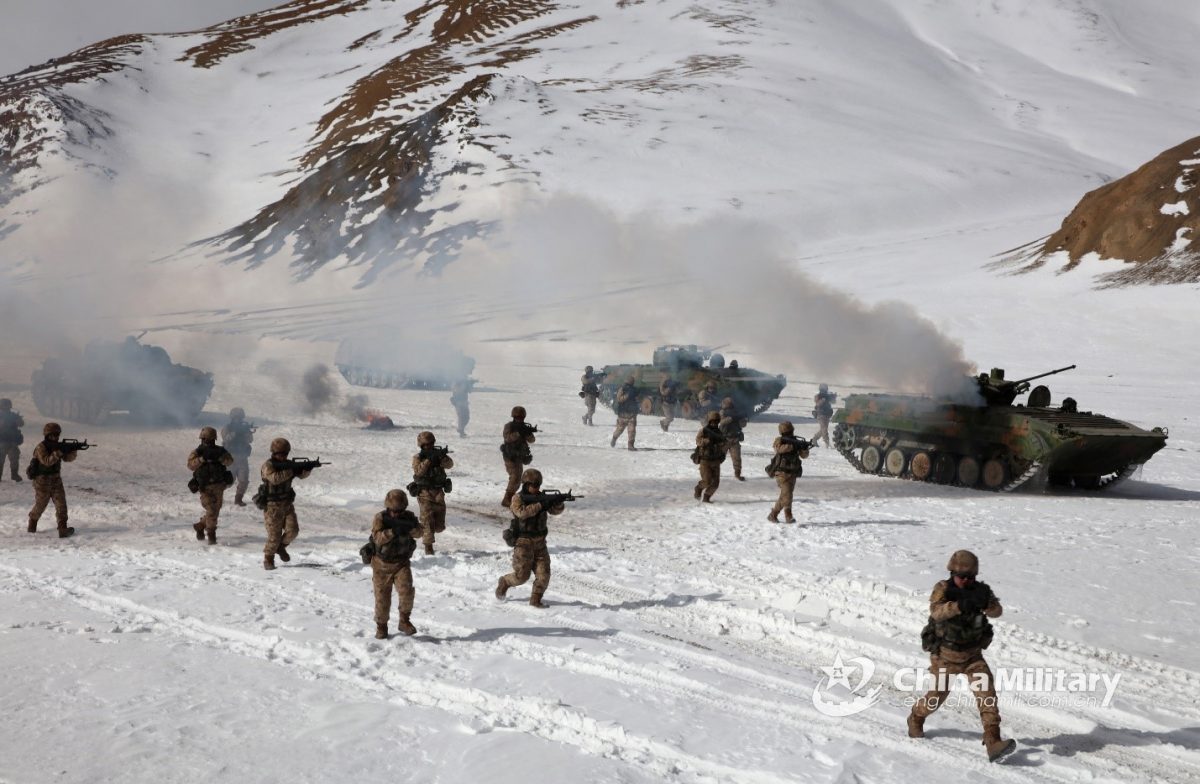Chinese President Xi Jinping and Russian President Vladimir Putin have developed a convenient and close relationship in recent years. When Putin was planning to invade Ukraine, he first consulted with the Chinese leader. Analysts report that Xi asked Putin to wait until after the conclusion of the Olympic games being held in Beijing. Putin obliged. As the Russian invasion of Ukraine drags into its third week, Russian soldiers are starting to run out of food rations, with some looting homes for any food they can find to survive. It suggests Russia was not prepared for an extended period of conflict.
This week Moscow was forced to reach out to China to request shipments of MRE rations for its soldiers in the field. Given the cold weather in Ukraine and the physical exertion of the fight, soldiers need 4,000 – 6,000 calories a day. According to James Palmer, writing in Foreign Policy, China doesn’t have a large enough stockpile of MRE’s to fulfill Russia needs. The US developed self-heating MRE’s in the late 1970’s. China’s version was not ready until 13 years ago. It was considered inedible and contained only 1,000 calories. Chinese soldiers normally are fed cooked meals by one of the 10,000 chefs that graduate from the PLA cooking school each year.
While something as simple as a hot meal on a battlefield may not appear powerful enough alone to cause Russia to lose a war, it may be enough to push Xi Jinping into reconsidering his immediate urge for military adventures outside of Chinese territory. Logistics and wartime experience can determine who wins a conflict. Xi may be coming to the realization that while China possesses modern weapons system and advanced technologies, it is not ready to go to war with untried troops and questionable supply lines against a foreign military power.
China’s last foreign expedition ended in failure in northern Vietnam in 1979. China was so ill-prepared that when its soldiers left bags of cement in their “hidey holes” high in the jungle mountains to go out on patrol, they often got lost. In the meantime, Vietnamese soldiers took over the positions, used the cement to reinforce the emplacements, and routed the Chinese when they wandered back. The odds of China providing support to Russia in Ukraine appear to be moving in favor of China distancing itself from Russia’s invasion. Earlier this week, senior Chinese diplomat Yang Jiechi and US National Security Advisor Jake Sullivan met in Rome for seven hours of discussions. Ukraine dominated the conversation, according to those close to the meeting.
China does not appear ready to fully back Russian aggression. At home the country is facing a new round of Covid with a high Omicron infection rate and a stagnating economy. Xi Jinping also has some in the CCP who are arguing that a third major issue is too much for Beijing to handle right now. The global outbreak of strong support for Ukraine also may be contributing to Chinese caution. Xi Jinping, arguably, is a better strategist than Vladimir Putin. Odds are he understands that China’s best course of action right now is to remain neutral. Beijing’s ambassador in Washington wrote in a Washington Post OpEd this week that to think otherwise is the result of disinformation.
In another article by Hu Wei, vice-chairman of the Public Policy Research Center of the Counselor’s Office of the Chinese State Council, he argues that “Being in the same boat with Putin will impact China should he lose power. Unless Putin can secure victory with China’s backing, a prospect which looks bleak at the moment, China does not have the clout to back Russia.” Hu suggests that China needs to avoid being isolated if Russia fails to secure a victory. Moving away off from Putin and giving up neutrality will help build China’s international image and ease its relations with the US and the West. China’s window of opportunity will only be open for another two weeks or so. It will require determination on the part of Xi and the senior CCP leadership. China cannot walk the fencepost for much longer. Palmer suggests that there are three main opinions inside the Chinese government at the moment. There are those in the diplomatic corps who recognize that China signed a pledge to defend Ukraine only a few years ago.
Nationalist entrepreneurs form a second opinion group as they have done well by taking strong anti-US positions in the past. Third, is the PLA who from their military academies to their high command, believe in the conspiracy theories espoused by Moscow. Xi Jinping has little time left to sort out his country’s position regarding Russia’s invasion and just as short a period to determine if it is the optimal time to act aggressively toward Taiwan or conduct military operations elsewhere in the South or East China Seas.
Daria Novak served in the U.S. State Department, specializing in China
Photo: PRC Soldiers assigned to a combined-arms move forward in coordination with infantry fighting vehicles in a tactical exercise on February 18, 2022. (eng.chinamil.com.cn/Photo by Yuan Kai)
